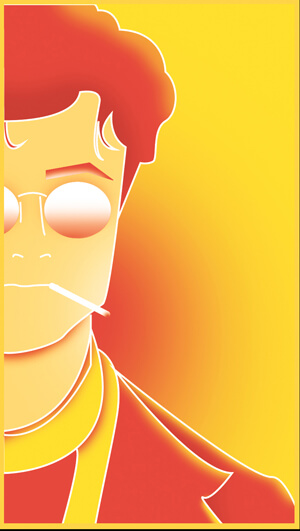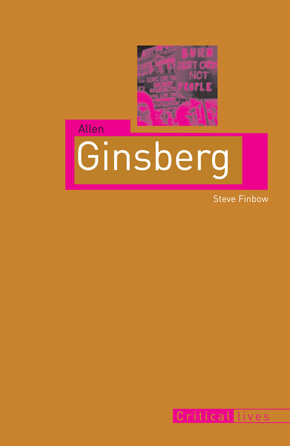June is Pride Month and there are plenty of films available for streaming as well as some classic titles being released (or re-released) on demand and home video. Here’s a guide to what to watch this Pride month.
New Films:
“The World to Come”
Released earlier this year, this film is also available on home video June 1. This beguiling film has Abigail (Katherine Waterston) mourning the recent loss of her daughter and eking out an unhappy life with her husband Dyer (Casey Affleck) on a farm in upstate New York in 1856. Her situation changes, however, when she meets her new neighbor Tallie (Vanessa Kirby), the wife of Finney (Christopher Abbott). Director Mona Fastvold chronicles how these two oppressed women find a measure of happiness, meeting regularly, and becoming more intimate. As they silently test the waters of their forbidden attraction, viewers will feel a spark of electricity between them. Leisurely paced, and providing a strong sense of time and place, this affecting drama generates most of its interest in the tender scenes between the two women. Fastvold emphasizes the social constraints these women must endure and, while “The World to Come” does feel stifling at times, that is to the film’s credit.
“Julia Scotti: Funny That Way”
This documentary, available on VOD platforms starting June 1, uses interviews, animation, and performance clips to showcase the personable transgender comedian Scotti, who was a finalist on “America’s Got Talent.” She describes standup as “opening your soul” and likens it to the difficulty of living one’s truth. Scotti talks on and off-stage about her life before her transition, and she startles herself watching a clip of a transphobic routine she earlier performed as a man. This documentary also shows how Scotti has bonded with her son and daughter who were initially kept from her after she came out as trans. Scotti’s humor stems from her cockeyed outlook on life, and this film captures her well.
“Bare”
Out June 22 on video and on demand, Aleksandr M. Vinogradov’s — ahem — revealing documentary chronicles the audition and rehearsals of Thierry Smits’ dance “Anima Ardens,” which is performed by 11 naked men. This observational film, which addresses issues of masculinity, weakness, possession, ritual, and bodies, does not provide much insight into Smits or the performers as it concentrates more on their bodies and skin. However, the dancers are poetry in motion as they execute various movements in unison, in small groups, or solo. “Bare” unfolds almost entirely in the theater, and the staging can be hypnotic. Arguably, the best scenes are the dancers hanging out on a smoke break talking about their relationships, or a casual scene of them goofing around while showering and in the locker room. The near-constant nudity of the attractive performers will be a draw for most viewers, who may not care that “Bare” is at times, a bit unfocused. The actual dance production itself is vague, but the imagery is vivid.
Classic Reissues:
In June, the Criterion Channel is providing a retrospective of several films by the out gay writer/directors Rob Epstein and Jeffrey Friedman. Highlights include the groundbreaking 1977 documentary profiling more than two dozen gay men and lesbians, “Word Is Out,” to the 1989 Oscar-winning short, “Common Threads,” about the AIDS quilt, and their 1984 Oscar-winning documentary, “The Times of Harvey Milk.” Also of note is their 2010 film, “Howl,” a stylish, highly compelling, and multi-layered feature that chronicles Allen Ginsberg’s remarkable poem and the obscenity trial brought against its publisher, Lawrence Ferlinghetti. “Howl” deftly uses animation, interviews, and courtroom drama to make Ginsberg’s words and imagery sing.

Strand Releasing is reissuing three LGBTQ films on demand June 1. Guys plays the girls in the 2003 drag queen comedy, “Girls will be Girls.” Written and directed by Richard Day, this very funny film concerns a trio of roommates — Evie (Jack Plotnick), an aging, alcoholic actress, Coco (Clinton Leupp), her long-suffering friend, and Varla (Jeffrey Robertson) who is just moving in. As they experience the trials and tribulations of careers and romance, there are some hilarious sight gags and zingers. The actresses are all fabulous, with Plotnick showcasing some crackerjack comic timing, and Leupp generating laughs with just an eye-roll.
However, Day’s other release, the phlegmatic “Straight-Jacket,” from 2004, tries to milk humor and social commentary from the premise of having a vain, promiscuous, gay actor Guy Stone (Matt Letscher) in 1950s Hollywood fall in love with the man of his dreams, Rick (Adam Greer) while posing as straight to save his career. While the irony is deliberate, what should be a clever and amusing film about sexuality and the evils of conformity is in fact, a didactic lesson about morality and being true to one’s self.
Gay writer/producer David Brind expanded his 2005 short called “Dare,” into a 2009 feature (both were directed by the straight Adam Salky). High schoolers Alexa (Emmy Rossum) and her gay best friend Ben (Ashley Springer) pine after Johnny (Zach Gilford), eventually ending up in a sexy threesome. Yet the point of “Dare” is how each of these teens changes as a result of their attractions. It’s a shame the film isn’t bolder, or even naughtier, but it’s still worth a look for the curious and the bi-curious.
Kino is offering two seminal films on home video June 29. Celebrating its 20th anniversary this year is Todd Haynes’ New Queer Cinema classic, “Poison,” inspired by Jean Genet’s novels. The film is still as striking — and as disturbing — as it was on initial release. Visually dazzling and emotionally visceral, “Poison” intercuts three “toxic” tales featuring social outcasts, their desires, and escapes. One is a documentary about a boy who kills his father, another is a black and white 1950s homage/AIDS parable about a disfigured scientist. Arguably the best/naughtiest vignette concerns a gay prisoner in obsessive, jealous love. Don’t miss this chance to re-screen this classic queer film.
The other title is, “BloodSisters: Leather, Dykes, & Sadomasochism,” director Michelle Handelman’s 1995 documentary about the S/M scene. This stimulating film features various women in the leather community talking candidly about their experiences in this social system, from issues of consent and identity, to belonging and visibility. There are also discussions of politics and activism, with footage from a 1993 March on Washington. “BloodSisters” also features photographs and clips from community events ranging from instructional class to a leather pageant. Handelman and her interviewees seek to debunk stereotypes and misconceptions, and they provide illuminating discussions of top and bottom, and femme and butch roles. The women’s sex positivity is appealing, and this documentary, while perhaps dated, remains empowering.


































